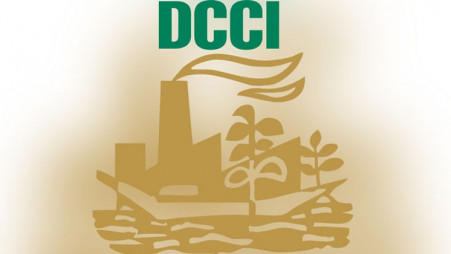Corruption, weak investment, inflation still haunting economy: Experts
Representatives from the Bangladesh Bank defended their tight monetary policy

Corruption, bureaucratic hurdles and poor revenue collection continue to weigh on Bangladesh's economy despite a change of government, while inflation remains stubbornly high due to inefficiencies in market management, economists and business leaders said today (24 August).
They were speaking at a seminar titled "Bangladesh's Current Economic Situation and Future Outlook from the Perspective of the Private Sector" organised by the Dhaka Chamber of Commerce and Industry (DCCI) at its Motijheel office.
Presenting the keynote paper, DCCI President Taskin Ahmed said global tariff and trade barriers are rising, and most economies are expected to slow further this year compared with 2024. Bangladesh, he warned, is no exception.
He said private investment has fallen to 22.48% of GDP in the 2024–25 fiscal year, the lowest in five years. "No new investment is coming under the current circumstances. To revive private investment, the country must ensure stability in the banking sector, political stability, and the removal of bureaucratic complexities."
Calling for an end to corruption and harassment by the National Board of Revenue (NBR), he said: "We wanted a new Bangladesh after the uprising, but corruption remains. Though steps have been taken to stabilise the economy, the NBR has become a cancer, increasing harassment instead of broadening the tax base."
Providing a counterpoint, Planning Commission Member Manzur Hossain highlighted positive economic indicators, including foreign exchange reserves exceeding $30 billion and a notable decrease in inflation. However, he noted that the price of rice remains high and that a further fall in inflation is dependent on controlling staple prices.
Manzur acknowledged the decline in private sector credit, stating that high lending rates and an unfavourable business environment could be contributing factors. He added that the central bank should consider releasing its hold on the US dollar and review whether its tight monetary policy is truly effective in controlling inflation.
Echoing the concerns, Mustafizur Rahman, a distinguished fellow of the Centre for Policy Dialogue (CPD), warned that while inflation rates have fallen, the high overall price level is a cause for concern as it has eroded purchasing power of common people.
He stressed the need to extend bonded warehouse and bank-to-bank letter of credit (LC) facilities to other promising export sectors to replicate the success of the readymade garment industry.
"We have not been able to implement the digitisation process based on our needs, so the tax-to-GDP ratio is not very promising," Mustafizur said. He added that the country's Annual Development Programme (ADP) is almost entirely debt-based, which is not a sustainable process, and called for a greater focus on domestic savings and tax collection to avoid a debt trap.
AK Enamul Haque, director general of the Bangladesh Institute of Development Studies (BIDS), described the current state of the economy as "better than bad" but added that this condition is not desirable in the long run. He stressed that tackling corruption is essential to save the economy and a fundamental change in people is required, not just official transfers as a form of punishment.
"The growth of imports is higher than that of exports, which is not desirable at all," he said, citing money laundering to Western countries as a key driver. Enamul emphasised that fundamental changes are needed in banking operations and that increasing the number of taxpayers is crucial, noting that the NBR's primary focus should be on this rather than on harassment.
Meanwhile, representatives from the Bangladesh Bank defended their tight monetary policy. Mahmud Salahuddin Naser, director of the Monetary Policy Department, acknowledged private sector complaints but stated the bank is working to create a more favourable environment. He noted that investment is also being hampered by energy shortages and poor law and order, and that high interest rates are not the sole factor.
Naushad Mustafa, another Bangladesh Bank director, added that capital machinery imports, a political movement in July, and last year's floods have contributed to an unfavourable investment climate. He said the central bank is working with commercial banks and development partners to improve the situation and that digital processes will help reduce the cost of loan distribution.
Md Rabiul Islam, a South Asia economist from the Asian Development Bank (ADB), provided an external perspective, recommending that Bangladesh enhance trade connectivity, link SMEs to export markets, and lower the cost of transporting goods. He also suggested increasing the use of man-made fibres in the garment sector and improving compliance standards in other sectors, such as the leather industry.



 Keep updated, follow The Business Standard's Google news channel
Keep updated, follow The Business Standard's Google news channel














